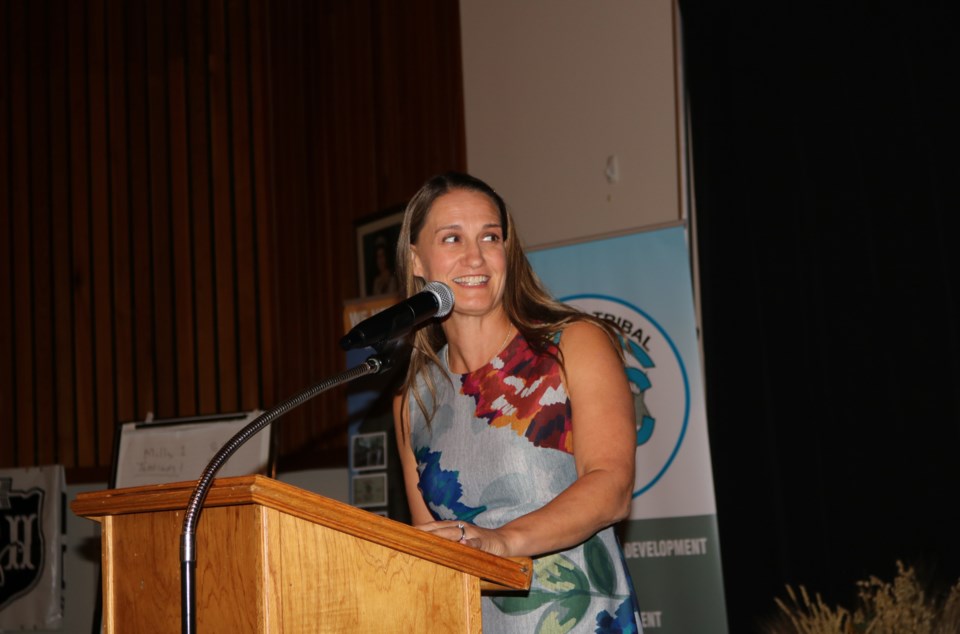YORKTON - It was a big night for the Yorkton Mill Heritage Society as it held its annual fundraising dinner.
Not only was it a night for a full house to hear guest speaker Sara Shymko talk about the importance or teaching agriculture in the classroom, but two major donations were announced.
Grain Millers has taken naming rights on the planned interpretative centre at the old mill for a donation of $100,000, and Ernie Aniuk has made a donation in a similar amount.
The dual donation push mill fundraising efforts past $1 million, about one-third of the amount the project will need.
In her presentation Shymko, who is executive director of Agriculture in the Classroom, said the interpretive centre can be an important local spot in terms of offering education to students about farming.
Shymko said teaching the history of farming connects directly to the history on Saskatchewan and “it matters.
“Learning about the history of milling (at the proposed centre); it’s going to inspire them.”
Shymko grew up on a mixed farm in Saskatchewan, and while she said she was “so privileged to grow up on a farm,” increasingly youngsters are not from a farm background.
Shymko related how in her role with Agriculture in the Classroom she was handing out seeds students could take home and plant when one young student came up and asked for seed for cheese. At that moment she said she fully understood the need for her organization.
“It’s more important than ever this generation learns where food comes from,” she said. “. . . There’s a growing disconnect between farms and kids.”
We are now at a point where Shymko noted there are youngsters in the province who have “never seen a cow.”
So when those youngsters have an opportunity to visit a diary and see a cow milked it is really about understanding where their food comes from, and the importance of the farmers doing that work.
“Milking a cow -- even if they know milk comes from a cow – is mind blowing,” she said.
Or “the miracle of an egg hatching, is pretty cool to see.”
Hands-on learning makes a huge difference.
“It connects the dots a little,” said Shymko.
And it’s not just children that need more agriculture education.
Shymko said an adult in Osler, Sask. was heard to say she “didn’t care what happened to farmers because she bought her food at a grocery store.”
Back to youth, Shymko said they require more agriculture education because they are the ones who must grow up to find solutions to farm issues such as climate change.
“The next generation of decision makers and big thinkers are in classrooms now,” she said, adding that they need to be interested in agriculture since the sector accounts for one-in-eight jobs in Canada.
“We need young people today to be the solution to problems we’re facing today.”
So, Shymko said it is very important “to inspire youth to care about their food.”
It can all start with something as simple as students rolling out canola seed to see the oil that comes from it.
Or, having a school garden where they can grow lettuce and tomatoes and herbs to create salads.
“It makes a difference,” said Shymko, reiterating education about agriculture is critical. “. . . It’s not nice to have, it’s a need to have.”

